MOTOWN PRODUCER: JIMMY ROACH
We may assume that we know who walks amongst us and can size a person up with a glance. Yet there are those in our midst who may have talents, skills, and historical significance that are not displayed on our daily news programs. There are some individuals whose story needs to be told lest they end up being unsung. Jimmy Roach is a producer/arranger who has contributed musical compositions that helped the Motown label create the soundtrack for a generation of people. Jimmy Roach has arranged and produced songs for groups within Motown and outside the label which include: The Four Tops, Smokey Robinson & The Miracles, David Ruffin (lead singer of the Temptations), The Temptations, Eddie Kendricks, Martha & The Vandellas, The Supremes (with lead singer Jean Terell), The Dramatics, The Spinners, The Chi-lites, The O’Jays, and more. Jimmy Roach has now started a Kick Starter campaign to continue the powerful tradition of quality R&B he has helped to create. See the link at the end of the interview which gives the details concerning his Kick Starter campaign. Let us take a look at the story of a producer and how he evolved from humble beginnings to today.
Q: How did your journey in music begin before you became a Motown Producer?
A: Basically it really started in Junior High School. At about the age of 14 or 15. You know I was really interested in music. In Junior High School I got into a vocal group. We called ourselves the “Lyrics”. This was in Brooklyn at Junior High School 117, Frances Scott Key. Before that on the block we lived there were a lot of people who sang. There were a lot of vocals groups from Brooklyn. There were 4 or 5 different groups that I knew of that were singing and making records. So in Junior High School I got into a group and I was the lead singer. We started singing at the different programs at that school. I got into the vocal chorus. I started taking piano lessons. My parents wanted me to take piano lessons at 8 or 9, but I didn’t want to. When I got interested in the music I said Wow, let me take some piano lessons. Then I started writing songs.
Q: What made you believe that you had the vision to become successful as a songwriter or arranger? Did you have that belief?
A: Yeah. During that time there were a lot of young groups: The Teenagers. There were a few different groups and I always admired them. I felt like my songs were as good as anything on the radio. Then what I started doing, after I started writing songs. I started going to Broadway. I started knocking on doors. At that time you could knock on a door and somebody would say, well come back at 3 o’clock or I will see you now. You could sit down and play your song , or sing your song. If they liked it, they would sign you and give you a songwriters contract for that song and get an advance. I started knocking on some doors. I met this guy Henry Glover, who was an A&R at King Records. At the time, when I was doing that, I wanted to be a singer. King Records had James Brown, and a few other artists. A lot of Blues artists like: Hank Ballard, The Midnighters were on King Records. I had a hard time seeing anyone at at King Records because Henry Glover was always in the studio, or he was busy in the office. But I kept going! One day he came out and said “You know, you have been persistent and I have been busy. But lets do this.” He asked me where do you live. At the time I was living in Queens and so did he. He said, what I’ll do is give you my number. You can come over and I will listen to your songs. One day I called him and went to his house. He lived in St. Albans, not far from where I lived. He was having a barbecue at his home at the time. He took some time and listened to my songs. He told me singers are a dime a dozen and from looking at your music. You see, I wrote out sheet music. With the lyrics underneath and all that. He said you know you have the talent to be a songwriter and an arranger. He was an arranger. He wrote and arranged things like “Peppermint Twist”. He wrote and arranged that. He gave me the number of a lady named Rosemarie Mccoy. I found out she was a big songwriter. I found out she had written for: Nat King Cole, Sarah Vaughn, Elvis Presley, and a lot of different people. She helped me perfect my songwriting. She also introduced me to a lot of people. That is what really got me going.
Q: What made you decide to make the move from New York to Detroit to pursue your dream?
A: Rosemarie Mccoy had something to do with that. She introduced me to a song writer named Pam Sawyer who was signed to Motown. But she lived in New Jersey. She was looking for someone in the New York area. What she was doing, was going out to Motown every couple of weeks and was writing with people there. She wanted somebody in the New York area that she could write with. We sat down and started writing. We wrote “My Whole World Ended”. We wrote quite a few songs. We made demos and would send them to Detroit. This particular song: “My Whole Word Ended”. One day she said I think the “Temptations” want to do this song. Wow! I was excited. I was a fan. I was a Motown fan. David Ruffin at that time was still in the Temptations. Then he eventually decided to leave Motown. She said they are going to give the song to David Ruffin. A few months later the song comes out and it became a hit. All of a sudden it was a top ten national hit. I had a decision to make, because I was really kind of tired of New York. After I went into the Army I realized New York was nice but they were a lot of other places I liked better. I had an opportunity to become a writer at United Artists. They were looking to expand their publishing company. The Motown thing came up. I said let me pursue that. Which I did. They invited me out to Detroit. I went out there for a couple of weeks. I tried it out and I liked it. I decided to sign with them. I moved out there.
Q: What was your first day at Motown like? How did it make you feel to be there?
A: I can’t remember the first day. The whole atmosphere. They were all creative people. I was meeting people like the Four Tops. It was really awesome. For instance when I was in New York. I always wanted to arrange. I had a hard time getting arranging jobs. Most of the arrangements went to 1 or 2 people in New York. When I went out to Motown. They let me do whatever I wanted to do. What ever I felt I could do. Three or Four months after I got there they introduced me to a guy named Frank Wilson who was producing the Four Tops. He gave me an assignment to do the arrangements on a half dozen songs on the Four Tops album: Still Waters Run Deep. Then I started doing a lot of different arrangements for different people. Frank and I did 2 albums together. I did most of the rhythm tracks. On the next album he let me do the horns, strings and the rhythm tracks. I did arrangements also for Eddie Kendricks, when he left the Temptations. After that they assigned me to do a Christmas album on the Miracles with Smokey Robinson. All of a sudden I went from just being a songwriter who wanted to arrange and produce, to being a Motown arranger, songwriter producer. They just let me go. They let me go do what I could do. I was fortunate or maybe talented enough. There were people at Motown who were singing, arranging, writing who never got anything released. I was there a couple of months and most of the things I did, got put out and released.
Q: What was the recording technology like? What what they using?
A: When I first went down there they were using Studio A, which is now the Motown Museum. There were 8 tracks in the studio. They would cut the rhythm. They would cut horns and strings together. Then they put the vocals on another track. I tried to stay away from using strings and horns together. I found that recording them together caused a bit of confusion. Especially when it came to notation. At one time we did the horns. Another time we did the strings as well as recording vocals and background vocals separately. The thing that impressed me about Motown when I got there was the number of musicians they used. When I was in New York we would use a 4 or 5 piece rhythm section. You would have bass, drums, keyboards, and 2 guitars. When I went to Motown they had 2 drummers, congas, 2 percussionists, plus vibes, 3 guitars, 2 keyboards. They had sometimes 8 or 9 people playing rhythm, that is how they got their sound. They never strayed away from that. There were horns & strings. With the strings I was totally impressed. In New York we used to have 4 or 5 strings. At Motown they had 16 strings. That was their system. That is how they got that Motown sound. I think I used 10 horns, a woodwind section with flutes. They just gave you whatever you needed. It just proved itself, in the way the records that came out. Beautiful records, Beautiful arrangements, and top notch arrangers. I have a favorite arranger and that’s Paul Riser. He is a good friend. He did the song “My Girl” by the Temptations. He is a great guy.
Q: How were the sessions when you produced tracks for Smokey Robinson and Miracles Christmas Album?
A: It was good. To be honest I had a little problem with Smokey in the beginning, because he didn’t know me. I was new to the company. He was trying to figure who is this guy, trying to tell me what to do. Later on his wife came and apologized. After he heard the final composition he came and apologized. He said don’t worry about it. That was the only problem I had. They generally were really nice people. Everybody was really nice as far as the artists were concerned.
Q: How long did it typically take to make those songs.?
A: That was the amazing thing about Motown. The artists were mainly on the road. They would learn the song pretty much in the studio. They were also professional. They would come in, learn the song. 2 or 3 takes after that it was like they knew the song all of their lives. After that they would just knock it out. There were very few retakes. They would knock out the song the same day.
Q: Did you get a chance to work with the Supremes?
A: I did not work with Diana Ross. She was in California at the time. It was the 2nd Supremes group where Jean Terell was the lead singer. The song was “Then I Met You” from the album Right On from the supremes.
Q: How was Mixing and Audio in those day?
A: The songs that I produced, I was there when they got mixed. I gave my input on how it should sound. Everything was done at the Motown facility. They had the concept of how they wanted things to sound as well. They never lost track of the 16 strings. The strings were up front. There were things I wanted brought out and they were brought forward in the mix. They never lost sight of the Motown sound. You have to credit the engineers
Q: Did they also do the mastering in house as well?
A: They did everything. Everything was done at the Motown facility. In fact I’m still friends with one of the guys who was an engineer there. I talked with him just last week. His name is Bob Ohlsson. He was one of the mixing and mastering engineers there. He is working in Nashville now.
Q: What made you start your label Jibaro music?
A: I had Jibaro music all along. I had it before I went to Motown. I never got a chance to use it as a publishing company. I recorded a self contained group in Detroit. The name of the group was Everlife. They were an Earth, Wind and Fire type of self contained group. We did an album. We were supposed to go with 20th Century Fox. They were supposed to put out a single. The group then changed management. Then 20th Century Fox eventually went out of business. I eventually released the single and album on my own. The single made local noise around Detroit. It got airplay but not nationally. That is how I started Jibaro Records.
Q: Tell me about music technology and how it has evolved over the years. Do you still feel the sound is as rich as it was in the past?
A: I started out and it was like 2 track, then it went up to 4 track. During the Motown days it was 8 track. It eventually became 16 track. Today it is pretty much unlimited. Today it is digital. The sound to me is clear, but it is not as rich. It is so compressed. Digital recording is really based on compression. There is a trade off. With analog you had a full rich sound, but you couldn’t hear everything. A lot of things got lost. You spent hours and hours mixing then you lost certain sounds in the final mix. The music is compressed and not as rich. I love the digital format and its innovations. Whether its good or bad, the average person can have their own studio. In the past a good studio would cost you a half million dollars. Now you could have your own studio for less than one thousand dollars. I haven’t used a real studio musician in years. I use music notation. Many of the sounds are authentic, and sound like real instruments.
Q: Tell me about your Kick Starter campaign and what its fulfillment will mean for you and your artists.
A: Kick Starter is a crowd funding organization. People pledge to back your project. I started a Kick Starter campaign for Jibaro music, to help me fund 3 of our artists: Mark Dean, Rosemarie a twelve year old singer and The Frank Lovejoy project. I am trying to raise $50,000 to help finish recording, and do the distribution. This will help level the playing field as far as promotion and marketing is concerned. It will help me get the artists to a position where people will recognize the name and begin to accept the product. It is really a whole different ball game from what it used to be. In the past you took a song to radio, and they would play it to death, and spur sales. That doesn’t happen anymore. It probably won’t happen because there are so many media levels. There are people who put their music on Facebook. They test it out on Twitter. There are so many different blogs. That is where people are buying music now. Things are so spread out that radio becomes as important as it was, but not at first like it was. You have to reach all of those mediums. You have to build an audience that will get to know them as artists and eventually buy the product.
Bonus Questions:
Q: Have you ever met Marvin Gaye?
A: A friend of mine Don Covay, who wrote a lot of songs for Aretha Franklin. He lived in Queens. We met when I got an award, the BMI Award for “My Whole World Ended” performed by David Ruffin (former lead singer of the Temptations). He was picking up an award for an Aretha Franklin song. We became friends. He would come out to Detroit and visit. One time he came to town and said Let’s go see my friend Marvin. He said we grew up together in Washington, DC. We got in the car, and we went over to Marvin Gayes house and he rang the bell. He walked in. Five minutes later he waved me in. I went in and we all sat and talked for a few hours. That happened a couple of times. So I met Marvin Gaye. I also saw him in the Studio when he was doing the big album: “Whats Going On”. One session he was doing the horns and strings. Another session he was doing the background. He acknowledge me and remembered me. Those were the opportunities to talk with and be around Marvin Gaye.
Q: Have you ever met Stevie Wonder?
A: When Stevie was at Motown. I met him after my first 2 weeks at Motown. He would run through the halls and pretend that he could see. He was a very adventurous young guy. I went to his wedding when he was older. I knew his fiancee. She was a secretary in the arranging department at Motown. She was a great singer. I knew Stevie Wonder pretty well. One time he was performing in Detroit and I went backstage to see him. We talked for a couple of hours. That was long after I left Motown. The last time I saw him was at Esther Edwards funeral (Berry Gordy’s sister and Motown Executive) about 3 years ago.
Support the efforts of Jimmy Roach to help renew R&B music.
The Supremes with Lead Singer: Jean Terrell -” Then I Met You”
Produced and Arranged By Jimmy Roach
Update:
Congratulations to Producer/Arranger Jimmy Roach who has been awarded the Willie Dixon Lifetime Song Writers Award. He was given this award on July 30, 2015 at the JUS’ BLUES Music Awards: “Night Of The Living Legends in Tunica, Mississippi. He was awarded for his work as a producer/arranger with artists: David Ruffin, Gloria Gaynor, The Dramatics, The Manhattans and many others. Congratulations and continued success. Here are some of the latest groups he has just recently released through his company JIBARO entertainment:
The Frank LoveJoy Project:
Marq Dean:
Category: Entertainment News, Tech Talk

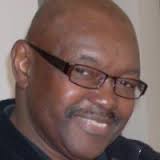



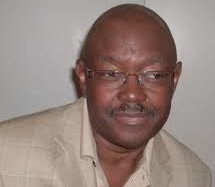



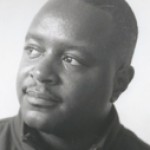
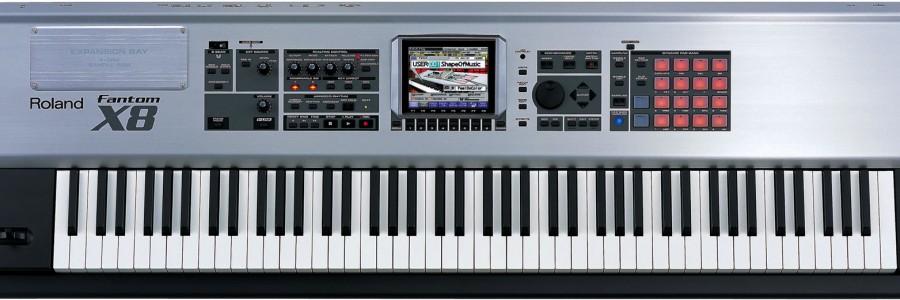
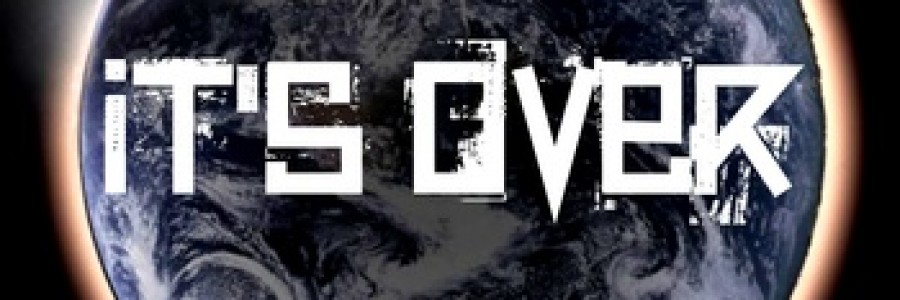
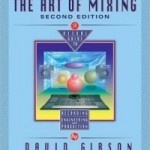




Comments (1)
Trackback URL | Comments RSS Feed
Sites That Link to this Post